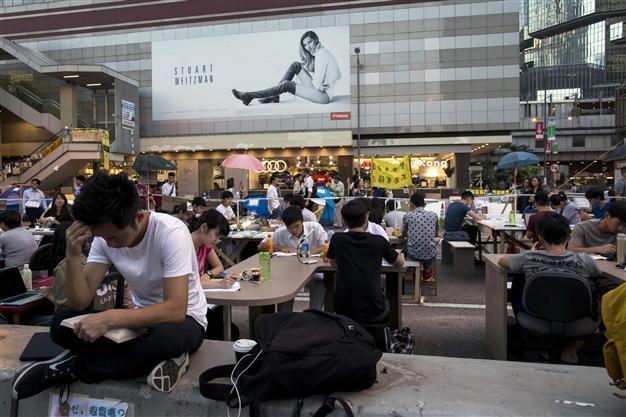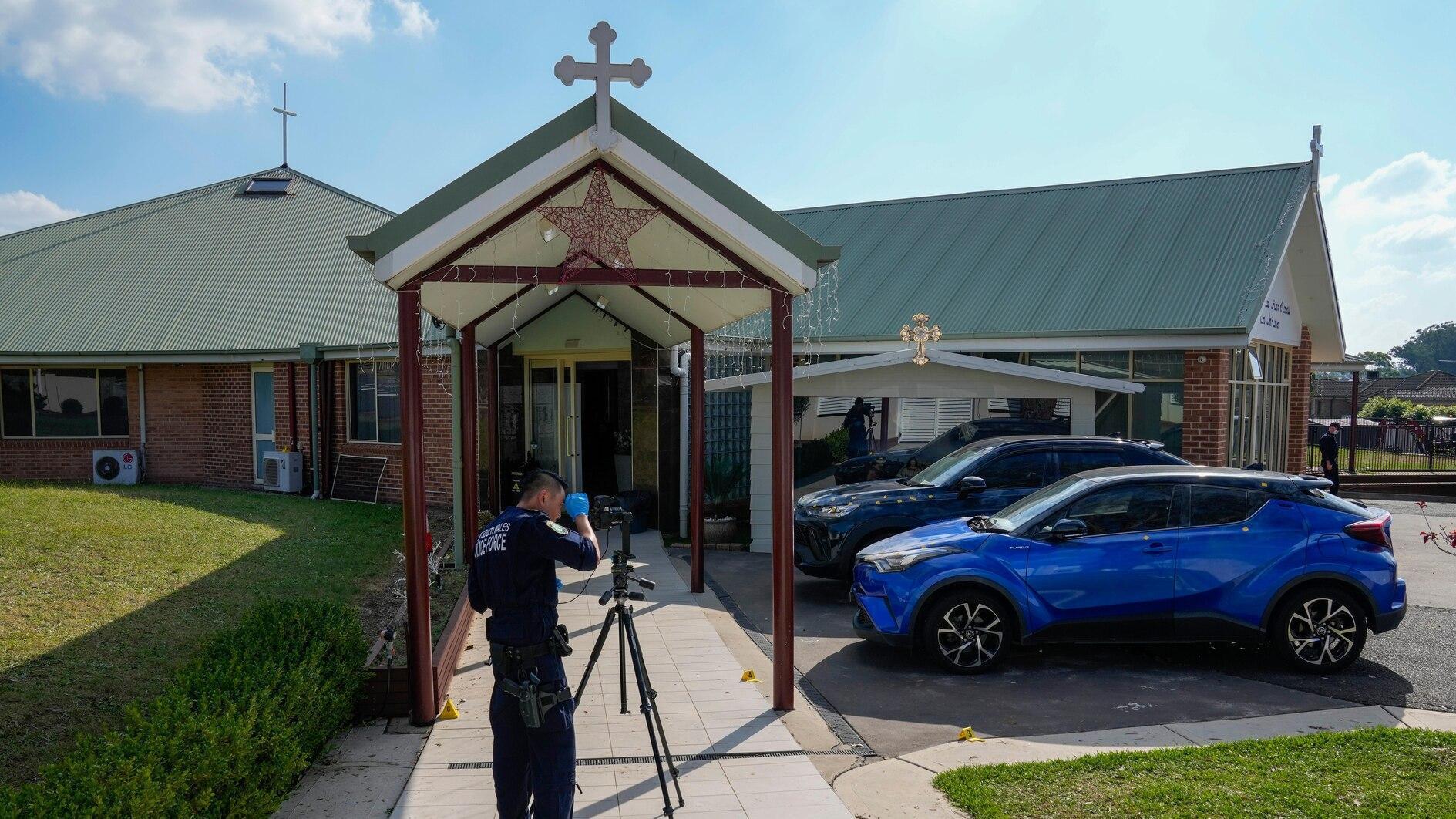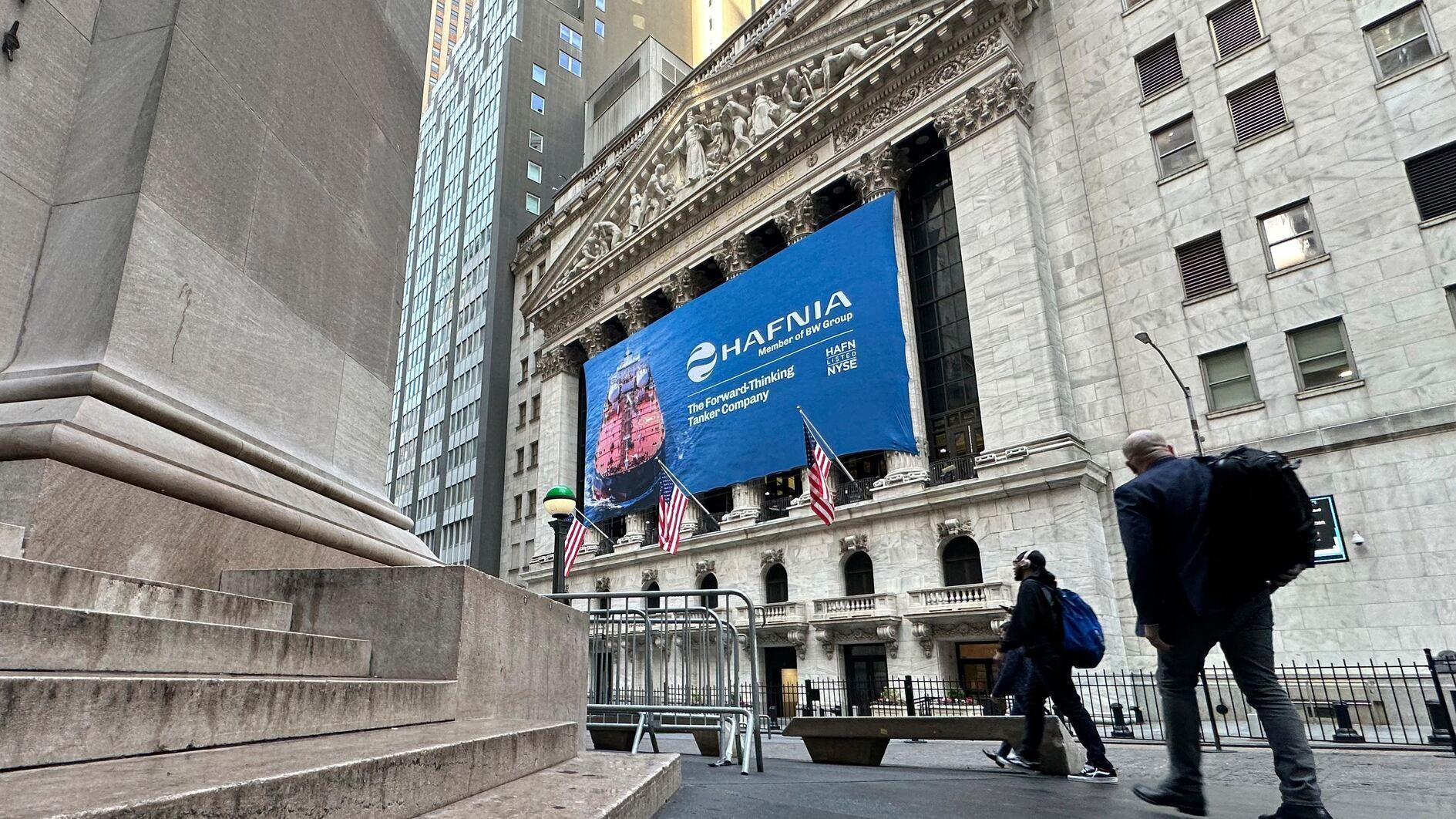Hong Kong protest leaders ridicule 'external forces' claim
HONG KONG - Agence France-Presse

Occupy Central protesters sit at a study area along the main street to the financial Central district as they continue blocking areas outside of the government headquarters building in Hong Kong October 20, 2014. REUTERS Photo
Hong Kong pro-democracy leaders Monday angrily rejected claims by the city's chief executive that "external forces" are orchestrating their mass rallies, ahead of talks intended to end three weeks of political stalemate.The denials came as the United States -- the implicit target of previous foreign meddling allegations by Beijing -- also denied any involvement in stirring up tensions in the financial hub.
In a television interview broadcast Sunday evening, embattled city leader Leung Chun-ying blamed foreign forces for the ongoing protests but refused to identify them.
The claims sparked ridicule from democracy leaders in the semi-autonomous Chinese city, who insist their movement is fuelled by local demands for greater democratic freedoms and growing discontent at increased inequality.
In a sarcastic post on his Facebook page Monday, teenage student leader Joshua Wong said: "My links with foreign countries are limited to my Korean cellphone, my American computer and my Japanese Gundam (an animated series featuring robots). And of course, all of these are 'Made in China'." Claudia Mo, a prominent pro-democracy lawmaker, accused the Hong Kong government of smear tactics.
"They cannot succumb to the protesters and say 'Maybe we should make concessions?' so instead they have to blacken and smear this campaign. It's all very dirty," she told AFP.
The city's US consulate also hit out at the claims, according to the South China Morning Post.
"What is happening in Hong Kong is about the people of Hong Kong, and any assertion otherwise is an attempt to distract from the issue at hand," the paper quoted consulate spokesman Scott Robinson as saying.
Parts of Hong Kong have been paralysed by mass rallies and road blockades demanding free elections in the city, in one of the biggest challenges to Beijing's authority since the Tiananmen pro-democracy protests of 1989.
Beijing has offered Hong Kongers the chance to vote for their next leader in 2017. But only those vetted by a loyalist committee will be allowed to stand -- something protesters have labelled as "fake democracy".
Talks to end the impasse are slated for late Tuesday between student leaders and senior government officials. But there are fears any further clashes between police and protesters could derail those discussions.
After more than a fortnight of largely peaceful mass rallies, tensions soared after protesters clashed with police trying to clear some of the major intersections that demonstrators control.
Overnight there was no violence at the three protest sites where protesters hold sway -- the first peaceful period in four days.
The working-class district of Mongkok, which has seen the worst of the violence, was largely calmed by the presence of two popular pro-democracy lawmakers -- including Mo -- who placed themselves between police and protester lines.
Despite the lull in violence, police Monday renewed their criticism of what they have begun to call a group of "radical" protesters in Mongkok who charge their lines and provoke officers.
They also criticised parents for bringing children to the protest site, describing them as "irresponsible, selfish and reckless".
Protesters in Mongkok, many of whom have begun donning helmets and hand-made body armour, deny being the cause of the rise in violence.
They say they have been forced to adopt defensive protection because police have begun to increasingly use batons on them.
The city's High Court granted an injunction Monday to local business owners ordering the protesters at Mongkok and a section of Admiralty, another area being occupied, to leave. It remained to be seen what effect the order would have, given that the protest was already considered illegal by the authorities.
During his interview with ATV Leung said protests had got "out of hand" and called for "a peaceful and a meaningful end to this problem". But he also accused the movement of taking its cue from outsiders.
"I shan't go into details, but this is not entirely a domestic movement," he said.
His comments echoed Chinese state media, which has repeatedly alleged that "anti-China forces" are manipulating the protesters.
Commentaries on the mainland have also increasingly described the Hong Kong protests as a "colour revolution" -- a term used by Beijing for political movements funded by international forces.
Alex Chow, president of the Hong Kong Federation of Students, denied those claims and called on Leung to give concrete examples showing why he believed the protests were not locally inspired.
"
He clearly wants to attack the movement by labelling it a colour revolution. But as a chief executive, who is accountable to the public, I hope he will produce evidence to back up such accusations," he told reporters late Sunday.
















